|
Written by David James Edited by Maureen Danielle G “I spoke so much about being a manic-depressive. I want to bring everyone back to my earliest memories of this companion of mine. Some people call this companion I have an ailment, or worse a terrible nightmare from which some people cannot awaken. I know that I have nothing to be ashamed of. I have nothing that should garner a stigma.” Richard Dreyfuss, Academy Award Winning Actor A while back, my Twitter friend Linda Diaz of Lauryn's Law tagged me in a post for an article from Washington Post about Rachel Griffin. Rachel is a singer/songwriter in New York, as well as a grad student at NYU. Rachel suffers from Mental Illness, and she recently put a call to action on Twitter with the hashtag #iamnotashamed, so that people can openly disclose their mental illness. The comments and Tweets were overwhelmingly positive. For many of you reading this, you may be thinking, "How can she do anything if she has mental illness?" or "Why would she admit to this?" The answer is easy. By creating awareness, Rachael is creating understanding. There is so much stigma and stereotype surrounding mental illness around the world, and many people opt to dwell on that as opposed to the reality. They picture people with mental illness as extras from One Few Over the Cuckoo's Nest, walking around institutions in bathrobes, drooling on themselves; or as maniacal characters such as the Joker from The Dark Knight; or the depressed, black clad Emo such The Cure's Robert Smith . Sufferers of mental illness are all of the above and none of the above. Yes, there are the tragedies of famous people like Vincent Van Gogh, Virginia Woolf, Ernest Hemingway, Kurt Cobain, Heath Ledger and Robin Williams who struggled with mental illness. All were brilliantly creative people who battled their demons, but in the end, lost. These are the stories that we are all familiar with because of their fame and tragic end. But there are people who have triumphed as well. Abraham Lincoln, Theodore Roosevelt, Winston Churchill, John Nash of A Beautiful Mind fame, Charles Dickens, former Today host Jane Pauley, 60 Minutes reporter Mike Wallace, NFL Hall of Famer Charles Haley, Princess Diana, and Star Wars’ star Carrie Fisher. That is not to say their lives were not without incident, but they were able to thrive. I admire these people as well as feel their pain. I too suffer from clinical depression, and have for many years. When I was young, I knew there was something different about me. I would go through long spells where I felt off, knowing that something was wrong, but not knowing what. I would sit in class and think that I was the only one that felt that way. As I got older, I would begin to feel desperate, to fear the future, to worry about little things, to blow things out of proportion, to lose sleep over things I had no control of, to feel lonely and sad, and to feel so down, it seemed that there was no way up. I took comfort in beer, and would drink enough to help me calm down and sleep. I would often drink to excess with my friends on weekends. I thought it was part of having a good time, of being in my 20's and fitting in, I was smart enough to know alcohol was a depressant, but I didn't care. Looking back I realize it was because I felt so low that I would use it as an excuse to numb myself to the perceived reality around me. In my 30's, as my first marriage was falling apart, in large part due to my self-destructive behavior, I finally reached out for help. I spoke to my doctor and was prescribed for Zoloft. After a while, it began to work. The feelings of despair began to dissipate, and the anxiety that had helped provoke my fears was lessened. For the first time in years, I felt somewhat normal, and began to work on putting my marriage back together. Unfortunately, I made the mistake that many do; I declared myself cured and stopped taking my medication. Things quickly fell apart again, and because of that, so did my marriage. I was soon divorced, living in a small apartment and seeing my son Peyton every other weekend. I went back to not only beer, but vodka as well. I would come home and mix a strong drink to help me calm my nerves, relax, and blot out my feelings so as to get to sleep. I never considered myself an alcoholic, I never turned to the "hair of the dog" in the morning, never missed work or even drank at work, but I could see myself becoming overly dependent on it. My lowest point came after a minor outpatient procedure. The procedure was on a Friday morning, and I spent the afternoon and evening in an anesthesia induced haze. The next morning, as the last of the anesthesia wore off, and my mind raced, I felt the most incredible psychological pain imaginable. I wept, cried and at my lowest thought about how easy it would be to stop the pain by taking all of the Ambien in my medicine cabinet. Then I remembered my son, my recently widowed father, and other family members, and knew I couldn't. I made an appointment that Monday and renewed my prescription for Zoloft. This time, it didn't work like before, and my doctor changed me to Cymbalta which did the job. I knew then that this time that the depression was not temporary, but my permanent companion. Once I had my mind back in order, I got my life in order. I soon met the love of my life, Lisa, who became my wife. We had a beautiful daughter, Emmalee, bought a new house, and all seemed well, as I was living the American Dream. Well, all this came crashing down on October 8, 2014, when I received the call that Peyton, just 13, had hung himself; he later passed away five days later on the 13th. This could have plunged me into a darkness from which there would be no return, but I was determined that I would survive. I went and had my meds adjusted, got into counseling and support, and made a conscious decision not to let myself find comfort or escape in anything; be it food or alcohol. Apart from a slip on the first New Year's Eve without Peyton, I have been well, and continue to do so. Part of my recovery meant preserving Peyton's memory and helping others. Thus I began the #Products4Peyton and got deeply involved with the #PeytonHeartProject. Both allow me to open talk about Peyton's death, suicide awareness and prevention and advocate for mental illness. Every day is a challenge. The fog has lifted from Peyton's death, and I never know what will trigger the tears, sadness, or anxiety. I take my medication, talk openly about my struggles and try to help others to also open up and seek help. My hope is that one day, the stigma of mental illness will be lifted, and the people suffering will be treated with the same dignity and respect that other illnesses receive. Until then, I will continue to tell my story and proudly proclaim "I am not ashamed of my mental illness!" Author's Note: The first time I posted on Twitter, I received a tweet from someone under the handle of @jailina_ telling me that because medical science hadn't conclusively proven mental illness, then there really wasn't anything wrong with me, and that it was all in my head. If you deal with mental illness, and someone tells you this, ignore them. Studies of the human brain are still going on, yet the human mind is still a mystery. Stay strong, ignore the naysayers and tell them #Iamnotashamed. David James is a 50 year old teacher and coach from Conroe, Texas, and also a mental illness advocate. He founded #Products4Peyton and is involved with the #PeytonHeartProject, following his son’s death.
David has also lobbied in Texas for the passage of HB 2186 which requires all school districts in Texas to provide mandatory suicide awareness and prevention training for all staff members. It was signed into law by Governor Greg Abbott in June of 2015.
0 Comments
Article by Christy Zigweid I have always been an artsy sort of person. When I was in elementary school I loved art and music class. I played the bells when I was a fifth grader (my one and only time playing in a band -- ironic I married a band director). I sang in the choir throughout middle school and high school. I learned how to play the piano (my favorite instrument). I am a scrapbooker and make homemade cards. There is not one thing I do each day that doesn't involve music or art on some level. Why Music Matters for Healing 1. Music can help calm and soothe I would venture to say many people have a song or type of music which calms them down. For me, it's spa/instrumental music. For my husband, it's obnoxious heavy metal music. I recently found an app called "Relax Melodies" (iTunes) (Android) which provides different music and sounds you can mix together to form your own unique sounds. I use these when I fly (I have horrible flying anxiety) and when I just want something soothing. You can also set the volume of each sound to your liking. My son uses this app every night when he goes to bed. Most nights I have it on to stop my mind from racing. 2. Music can motivate you How many times have you been browsing the music section and seen compilations of music for working out? Or know people who have a set playlist they use when working or doing homework? How about someone who listens to a certain song before they get out of bed to help them start the day? I listen to music when I'm cleaning house, driving in the car, and writing, just to name a few. And I listen to music when I'm in the middle of a depressive episode. No matter the type of music, it can help us to be productive as well as calm us down. 3. Music can pull you out of a tough spot We all have bad days. We all have times when we'd like to crawl into a hole and never come out. For me, lyrics are a huge factor in whether music helps me through the tough times. I wrote an article for This is My Brave, talking about The Tenors, and how their music helps me through rough spots. Sometimes it makes me cry. Other times it makes me angry enough to take action. My husband will be the first to tell you my playlist is long and 99.9% of the songs have some kind of personal connection for me. 4. You don't have to be musical to enjoy music Not everyone is talented in playing an instrument or singing. But you do have the ability to listen to music. A great clip from Mr. Holland's Opus shows how music can even reach those who cannot hear. Music is our international language. How do you use music for healing? About the Author
Seasonal Affective Disorder (SAD) is a mood disorder suffered by half a million people every winter in the United States. It typically flares up between September and April, peaking in December, January, and February. Symptoms include: extreme mood changes, anxiety, and inability to deal with stress, depression, loss of self-esteem, lethargy, overeating and social withdrawal. Diagnosis is typically made after three consecutive winters with these symptoms, followed by total remission in the spring and summer months. A milder version of the disorder is known as the “Winter Blues.” If you think you or a loved one may be suffering from either of these conditions, here are six tips to get you through the winter months: Image via Pixabay by unsplash 1. Consult a doctor. SAD symptoms can actually be confused with other medical conditions such as hypothyroidism and certain viral infections. Always consult a medical professional for a proper diagnosis to ensure the correct and best treatment for yourself. If you suspect a loved one is experiencing SAD symptoms, offer to accompany them to the doctor or help make the appointment. When you’re feeling down, taking that first step toward action can be the most difficult. Knowing someone is in your corner and willing to help makes a big difference. 2. With the support of your medical professional, consider light therapy. Light therapy mimics outdoor light and aims to cause a biochemical change in your brain to improve mood. Patients sit with eyes open in front of a light box containing fluorescent bulbs, which emit a different kind and intensity of light than those commonly found in households. Sufferers of SAD produce an excess of melatonin during the low-light months of fall and winter, which can cause debilitating depression symptoms. Exposure to bright light can suppress this over-production and help regulate one’s internal clock, reducing negative symptoms. Daily treatment of light therapy has shown improvement in 80% of participants. Bear in mind that there are mild symptoms of light therapy including: eyestrain, fatigue, irritability, nausea, headache, and insomnia. Work with your doctor to reduce these issues by moving farther from the light box, changing the time of day you employ light therapy, and reducing treatment time. 3. Eat healthy and get plenty of exercise. This is good advice year-round, but especially during the colder months when it’s easy to get comfortable cozying up inside with comfort food. Fight the urge to load up on carbs. They may give you an initial burst of energy but they can leave you feeling tired. Instead, stick to healthy options like veggies, fruits, and lean meats. Couple healthy eating with regular aerobic exercise to elevate your heart rate, even if it’s just a brisk walk around the block. When your body feels good, your mind often follows! 4. Stay social and involved as the winter months approach. Plan enjoyable social activities throughout the winter season. Brave the cold and go on group outings with friends to see movies, plays, and concerts, or throw a winter-themed costume party at your place. Make it a point to get some social interaction all winter — not just on the holidays! And if you notice a loved one is isolating themselves, don’t ignore them. Offer to make them a healthy dinner one evening or suggest a walk in a local park. People with SAD may need help from others when it comes to staying social. 5. Consider a dawn simulator alarm clock. Though it hasn’t been studied with SAD as much as light therapy, waking up with a dawn simulator may also ease your symptoms. This kind of device gradually increases the amount of light in your bedroom in the morning to imitate the rising sun and wake you up in a more natural way. It can help reset your circadian rhythm and improve your mood, and is a safer option for those suffering from both SAD and bipolar disorder. 6. Nip seasonal affective disorder in the bud. If you’ve been officially diagnosed, prepare yourself before it hits. Begin using a light box at the beginning of the fall, even if you aren’t yet feeling any symptoms. Do your best to spend time outdoors every day, regardless of the season. Even if it’s cloudy, the effects of sunlight are still available and beneficial. Finally, consider speaking to a mental health professional specializing in cognitive therapy, as this can be another effective treatment for SAD. Always consult a medical professional before beginning treatment for seasonal affective disorder. With the right diet and exercise, social interaction and light therapy, you can make your SAD a thing of the past. ABOUT THE AUTHOR
The weights kept piling up from 2001 until 2011. It started with depression. Depression gave way to fear and confusion. The abundance of failures caused a self-imposed isolation. Isolation led to addiction. Addiction led to insomnia. Insomnia led to mania and psychosis. Mania and psychosis led to frequent hospitalizations. Hospitalizations led to more and more medications. More medications led to agonizing side effects and deeper depression. Now that it is all on paper I can finally see and understand why the Holidays have always been a hard time for me. When I think back to when I was a kid I had always loved the holidays. From the age of 9 I was the first person on the block with lights up. I would go on a long hike in the woods with a saw and burlap to cut down evergreen limbs so I could bring them back home and wire together a wreath in my garage. I would place a candle in every window and of course I would set up that old toy train set in the basement. You know, the one that worked all of about 3 times the whole month of December but amazingly it was always when you brought someone down to see it. I would spend the rest of the month down there trying out new track combinations, searching tirelessly through boxes of ornaments looking for that little tin container of liquid smoke so that I could really impress the family this year. I just wanted it to look real and just like my home town. I had a list of what I wanted to get everyone I knew before the first of December. This is actually the first time I have sat down to ask myself. What happened? Why did I start hating the one time of year that I had felt completely free as a child? I am pretty sure it had a lot to do with the mass commercialization of everything. From toys to fashion everything took a turn in the late 1990’s. Toys and clothes were more expensive but were terrible quality. There was a lack of pride when it came to creating a product; and even less self-respect from the marketers that sold it. It was a time of glorifying numbers, shiny clothes, shiny cars, cheap music, and an overall loss of moral or value. Sure, I fell right into it when this all started. I was at the club with my new car and my 2 penny $100 shirt. But this faded after a few months and then I was not only mad at society. I was furious with myself. How could I get fooled? I do not need all of these extravagant things. They meant nothing. I knew I was miserable. However, I thought if I accumulated enough stuff I could essentially buy back my happiness. This was not the case at all. I would spend the next 10 years running away from everything that upset me rather than facing it head on. It was a slow torturous form of self-destruction. All I could think of was when I had run off to Los Angeles in the winter of 2008 and I did not know a soul. I was on the beach on a breezy 40 degree day having a cigarette when a girl around my age came up to me and asked me for a light. We got to talking and when she heard that I was new in town and had nowhere to go for Christmas she immediately asked me to come and spend it with her family. I seriously almost cried on the spot. I could not remember the last time someone had reached out to me and offered me something, especially expecting nothing in return. I will never be able to explain how dark a time this was, but how emotional I got. The feeling will stick with me forever. In 2012 I finally decided to do something about how I felt. There were people out there that had it much worse than me and I needed to start using this time of year to help someone else. I went online and looked up where there were Toys for Tots drop boxes, because let’s be honest, organizations like that are the real Santa Claus. I emailed and called the local food bank to see what foods they needed and where they were collecting. I made it my mission to give whatever I could within my means to try and make a difference in someone’s life that may have nothing. Someone that, without your gift or your food donation may not eat or receive anything while trying to keep warm with others they may not even know in a homeless shelter or hospital. All I can say is that I have been doing these things continuously since 2012 and every year has gotten better. My life feels like it has purpose. My relationships with friends and family have grown stronger. I feel better about myself and more in touch with reality. We need to break away from our attachment to all of this stuff that the TV keeps throwing at us. Just think about that thing you got last year that broke by New Years. Or what about the thing that you still have in the box? Please, give it up. I hope that you have a great holiday season, and if you want a guaranteed method of improving your life, or everyone’s life for that matter, give a little bit to someone that needs it and you will start to feel the joy of the season with them. Peace & Love. Sincerely, Joseph S. Fusaro Our friend Joe Fusaro is launching a new book. In this video Jay previews some of his work. Note: 12% of the profits will be going to the mental health organization This Is My Brave (@thisismybrave). Summary on Amazon: https://www.createspace.com/5815951 Welcome to The Frenzy! (thank you Black Friday and Cyber Monday and everything else). I spent yesterday in the city nearest me. Wandering around the city by myself is one of my favourite things to do. Driving there I noticed how excited I was about this little adventure, this ritual that I've grown to value. As the taller buildings came into view, I could sense the buzz, the bustling crowd, the sounds, the sights. Was that a sparkling Christmas tree I spotted across the river? And on cue an old Christmas song comes on the radio. Sigh and Bliss! I just love the contagious, positive atmosphere around the holidays! Usually. The new lights were just up, it was seasonably cold and crisp and the air had that tantalising scent of outdoor food stalls. Route planned, (extra) hot chocolate in hand, camera on shoulder, I got busy people-watching. Heaven! Well, sort of. A few minutes in I noticed that my fellow humans were, well, swarming (versus 'buzzing'). Intent on buying loads of 'stuff', they were completely oblivious to my existence. Literally. I did not (and do not) enjoy being blindly bumped into - with surprising force in some cases - or shoved out of the way. After one particularly solid jostle I was reminded once again how lucky I am not to be small in stature or feeble in health. Overwhelmed yet? As I looked around, I noticed the stress was etched, carved onto these faces. The deep frowns, the clenched jaws. And then I realized it: I was frowning too. I'd caught the stress bug (it's highly contagious, you know). Uh-oh. While I'd like to say I was a paragon of Zen, that would be a lie. However, I did manage to keep my irritation in check by grounding myself, and reminding myself that I didn't have to join in on the frenzy - I didn't have to give the stress "free rent" in my head and body. How did I ground myself in the middle of a virtual tidal-wave of anxious frenzy? I used these techniques: I chose to refocus my attention back onto the lovely smells (oh, yum), slowed back to my own normal walking pace, and located feelings of compassion I had for these stressed shoppers who were banging into each other (AND me!). It wasn't personal. They didn't mean it. They weren't even present. But I was, so I could choose my mood. Being present allows us to do that. So I did. I chose my mood. And pretty quickly I was back to people watching, smiling and enjoying my hot chocolate. The holiday season and Christmas is a terribly trying time for a lot of us. Grief is triggered at this time, maybe more than at any other. The holidays are bulging with childhood memories, and not all of them will be good. For some people they will bring painful, difficult memories. It's not all toys and laughter, we know that. We are all under pressure to provide, celebrate, give and be happy during the holidays. And while all of these things feel and are good, scheduled joy doesn't feel as great as spontaneous joy. With all of the stress and pressure, remember that you (can) choose how you would like to feel, think and act. Knowing that, please accept this letter from us to you - our Holiday 'Wish List' as it were: Wishing you all more zen, and less frenzy this holiday season Much love, peace and warmth Sally & Tanya xoxo July of 2013 was the last time I was hospitalized for a bipolar 1 mania flare up. Coincidentally, it was Independence Day. I had gone back on Amphetamines because the depression and pain caused by my anti-psychotics was just too much. It once again got to a point where I had not slept for a little over a month and I lost my mind. I could not get any kind of grasp on reality. I thought my emails were hacked. I thought there was some master plan for my friends and family to put me away for life unless I abided by their rules. I would sit and talk to the newscasters on TV. It was bad. It was not the worst I had been, but it was really bad. I remember trying to lie my way through it in the ER; although I am sure everyone could read how fast my mind was going from my face. I could not make eye contact with anyone. I was stuttering, sweating, and I was scared to death of everything. After a couple hours of trying to keep my psychosis under wraps and lying to my Doctor she said, “Please Joe, you need medication just like Robin Williams needs medication. You remind me exactly of Robin Williams. You know, you are a little anxious, and a little erratic.” I was more than a little confused by the comment. I thought I was being very serious but I guess my words were coming out as if I were joking or being overly sarcastic. It was about a year later that I finally understood her completely. Robin Williams commit suicide in August of 2014 and the moment I found out I knew I had to make some serious changes in the way I was approaching the topic of mental illness, depression, suicide, mania, or whatever physical illness caused Robin to end his own life. No illness is funny. And by joking about illness we take away people’s hope and that is not fair. Sometimes hope is all someone has. The truth is it does not really matter what the precursor was because no matter what the illness you would have to be suffering from immense stress. Stress can be emotional or physical and the symptoms can get mixed up. There are many times in my life that I have been very depressed or manic and I would feel physical pain. There are also many times that I have been physically injured and have become extremely depressed. I remember a lot of my family and friends told me how sad they were that Robin commit suicide and I had the same response to everyone, I would say “, I know, this one really hit me hard because I understand him right down to the last second and for some strange reason or some little light in the distance I decided not to go through with it.” Either way, my state, or anyone’s mental state was not something that can be joked about. I thought it was okay for me to joke about my own life, but once I saw a man take his life it finally felt real to me. This "funny" man was screaming and pleading for help. And no one had a clue. People take words literally for the most part and no one is trained to read through mania to the deep, deep depression behind it. I needed to explain to everyone exactly how I felt the whole time I was sick, without dancing around it or laughing about the things that I said. Nothing was funny to me. Everything was extremely sad and as much as it may hurt at first, everyone needed to know the truth. My bipolar was the most serious thing in my life and that was the only way I would be able to get through to or relate with anyone. I just want to note that I am not blaming Robin’s friends or family. I am sure they knew and felt his pain. We are all a conglomerate of everyone we know and reach out to in our lives. Yes, maybe his family and friends were there for him, but in his sad and stressed eyes there were millions of people that did not understand the real Robin at all. I don’t know anything about fame but being bipolar I do know percentages and proportions. Everyone in the social media and electronic generation does because whether we have 10 followers or 100,000 followers it is usually never enough. Thankfully I have learned that substance in small numbers is much more gratifying than a million people that are in love with a figment or false representation of me. I just think that as a society we need to stop labeling people for life over a 2 hour movie that we know them from, or a 4 minute song we heard on the radio. We all have feelings. We all have good days and bad days. Every woman is someone’s mother or daughter. Every man is somebody’s brother or son. Believe it or not, deep down inside we really are all the same. Joseph S. Fusaro “It was as if my father had given me, by way of temperament, an impossibly wild, dark, and unbroken horse. It was a horse without a name, and a horse with no experience of a bit between its teeth.” We talk about heritage. Our roots. We’re proud of it. We get tattoos. We give our children cultural names. We hang flags of our origin in front of our homes. There is an entire website dedicated to tracing your ancestry. However, when it comes down to tracing the hereditary cause of mental illness in our own lives, we don’t, it seems we cross our fingers, start our families and pray our kids don’t end up like our “wacky” uncle Bob. At the age of twelve, I started treatment for my moods. I began seeing a psychiatrist in the city, the same one my two older siblings were seeing. Sometimes we’d all go together. We never talked about it. We wait our turn, go in, come out and that was it. In fact, our whole family at some point underwent treatment for some kind of mood disorder or addiction. We never talked about it. In fact, we still don’t. During a recent car ride with my parents, my father spoke of his cousin who had spent her entire life in a institution, this was the first time I had heard about it. My cousin was currently involuntary admitted to a hospital and was declared a ward of the state. As we drove further on the road, my parents began to disclose more cousins, uncles, siblings and even their parents who had been affected my a mental disorder in someway. Mapping it out in my head, it would be impossible to map out our family without a blank space. Families for Depression Awareness has a convenient tool to map out your own families history with mental health. Although it is limited with how many family members you can add, it is a helpful tool in visualizing your families history. It’s worth a visit http://familyaware.org/familytree/. I decided to finally map out my family’s genogram, going back to my grandparents. As you can see practically everyone in my family has been affected by some kind of mental disorder. Have you mapped out your family? If so, I would love to share your Genogram (tweet me @alifeWOstorms) — it’s hereditary — let’s acknowledge that. (Here is mine mapped out.) Bio
A life without storms is a 20-something blogger living with Bipolar. Here are my links to my social media. Medium: https://medium.com/@alifeWOstorms Twitter: https://twitter.com/alifeWOstorms Website: http://www.alifewithoutstorms.com/ It's been a while; I don't know how to feel about this or what I make about my absence from behind this pink laptop which is missing the letter p. I guess in a selfish manner it's been a good thing that I've not sat down and wrote about those feelings and emotions that haunted and controlled my mind for so long. In terms of the other people and the bigger picture it’s probably not been my kindest move therefore please accept my humble apologises, however I'm back and intend to try and help whoever and wherever I can.
So why the return? If you've followed my journey from the start of my dark days, which I like to refer to as my meltdown, you'll know how far I've came from where I was and how well I am doing or some day’s appear to be doing. If this is your first time reading my blogs you will be able to catch up on my journey from my wordpress account or my twitter account, I'm not going to lie you'd be better catching up on the walking dead or criminal minds box set so to save you a bit of reading I shall give you a little insight. I suffered or still suffer from a condition called PTSD. My world was filled with illogical and irrational thinking, fears, self doubt, depression, the need for safety and an abundance of self doubt and a lack of self worth. The world was a scary and horrible place for me, I cut myself off and slowly allowed the depression and anxieties to convince me life was going to be a like this forever, a constant battle, a cycle of anxious and depressive thoughts, eventually I sought help and thankfully met my amazing psychologist Laura. Laura diagnosed the PTSD and then we began my treatment which consisted of Cognitive behavioural therapy sessions and me facing up to my fears and approaching head on the situations I was avoiding. Two and a half years later I'm here and I'm still doing well, I'm mentally stronger, I've not suffered a period of bad depression since the end of my treatment and I do not look back with regrets or look forward to the future with the same sense of apprehension as I did previous to my treatments. I do however have periods of anxiety, it’s nowhere near as often or as continuous as it was when I was at my worst but I'd say it's crippling when it takes a hold. This is the reasoning behind this blog, a friend asked me to describe how my anxiety feels and what happens when it does get a hold of me and could I write a blog about it. I've had a couple of efforts previous to this one trying to write a blog solely about anxiety and failed. I think this is because it was always the depression that affected me the most, the depression was my greater enemy, the anxiety was fed from the depression or from the memories of the actual event that led to me suffering from PTSD, now I'm in a different place mentally and not suffering from the depression I am slowly learning and realising the affect that anxiety is having on me both mentally and physically. So how would I describe my anxiety, it's hard, it's the most illogical thing you can imagine but also it's the most controlling thing you can imagine. I think because I underwent my treatment and learned skills how to cope with anxious thoughts, like asking myself the following, "how will this affect me in five years time?" "What is the worst that can happen?" "What are the chances of it actually happening?" I can recognise it is happening more than I could before I underwent my treatment but at times you still feel it taking control of your mind. An overwhelming feeling of dread, panic and fear, I feel my heart racing, I can feel my breathing speeding up, and I can't get the anxious or illogical voice to stop. It's so hard to explain. What makes it harder for me to grasp or comprehend now is that my fears are more illogical now than they were when I suffering from the PTSD. When I had the PTSD my fears were focused on being safe, avoiding pubs, being on the street at night, I should probably explain here that I got attacked outside a pub and it was at night, like I say it's all in my other blogs, so I can understand why I had those fears, now my fears are focused around my health and getting ill. I'm not simply talking about catching a cold and it escalating to Man flu, I mean when I get Ill I imagine the worst case scenario. It's so illogical you wouldn't believe it. I've took 3 HIV tests this year even though I've not even put myself in a position where I'm at risk, unsurprisingly they were all clear. If I get a rash, I'm googling my symptoms to see what is up with me, it's never the most common illness I have either, it's always the worst case scenario. I know this is common and it's labeled as Health Anxiety so I'm slowly accepting it and not beating myself up about it but I've used this to highlight what I mean about anxiety, it's so illogical yet so powerful. Crippling is the best term to describe. Sometimes my anxieties cripple me for a bit, I spend a week or so in a state of apprehension, I'm vigilant, agitated, and grumpy. I recognise it though and try to deal with it. I've found friends I can talk to about it and I do. I don't get it that often now but when I do it's horrendous however I know it's a temporary setback. I focus my thoughts and look back to where I was and where I am now. I'm nearly half way through an undergraduate psychology degree, I've got a job supporting adults with learning difficulties and disabilities, I do my voluntary role with victim support where I help support victims of crimes, I can see the difference I make to peoples life's. I'm able to spend time with my mates and go places I could only dream of when I was at my worst and all of this pulls me through. I’ve had issues with Anxiety and Mental Health disorders for as long as I can remember. When I was aged 8 I was diagnosed with Obsessive Compulsive Disorder (something I’ll write about in the future), which I believe stemmed from a severe phobia of being sick (emetophobia). My OCD has manifested itself in all sorts of different ways (it’s not all about cleaning and washing your hands, you know!), especially over the last 2 years.
Today, what I’d like to write about is my experience with Generalised Anxiety Disorder. A condition I was diagnosed as suffering from; back in January 2015. Throughout the second half of this year, I’ve been upfront and honest about my mental health issues. I’ve previously written about how I suffered from Post Natal Depression & Anxiety following the birth of my son in 2013. I’d like to continue to be open and honest about how my mental health affects my day to day life. In many ways it’s cathartic to write about but also I’m very much of the opinion, the more we talk about mental health, the more we can break down the stigma that still seems to be ever present even in this day and age. So, Generalised Anxiety Disorder….what is it? Generalised Anxiety Disorder (GAD) can be defined as a disorder in which the sufferer feels in a constant state of high anxiety and is often known as ‘chronic worrying’ or a ‘free floating’ anxiety condition. (credit: Anxiety UK) As I mentioned, I’ve always suffered from varying degrees of anxiety throughout my life. I’ve ALWAYS been a worrier, despite my confident exterior, on the inside there has always been a battle of wills going on. Desperately trying not to let my worries overcome me, whilst also in some strange way, ensuring I pay enough attention to the worries circling my mind so that I don’t ‘get caught out’. What do I mean by that? Let’s dissect the last sentence a little. If I didn’t have something to worry about, to fret over, to even obsess over (enter the OCD), I would worry about that. I would almost worry that if I was feeling good and worry free, that something would come along and bite me on the backside when I least expected it. I would feel like I couldn’t relax, I couldn’t live in the here and the now, for fear of what might be lurking round the corner. So, what would I worry about? What was so frightening that it was having this effect on me? Anything. Absolutely anything is the answer to that question. It could be something so small and minor as worrying that I might get a cold and have to cancel a night out I had arranged (this was more pre-Motherhood). I would literally be panic stricken that I might develop a minor illness that would render me unable to stick to plans I had made. Looking back, it sounds ridiculous, surely it would be seen as one of those things. I’d got a cold, it’s an inconvenience but I’ll just rearrange the night out and ride the minor irritation out until I’m better. But no, I couldn’t do that. I would begin to catastrophize, if I got a cold, I wouldn’t be able to go to work perhaps; therefore I might get the sack. I wouldn’t be able to go on my night out; my friends might fall out with me. This is just one example of a worry. Another example would be the irrepressible fear that I had said something offensive to someone. The mind is an incredibly powerful thing, this is something I have learnt especially over the last year or 2. It is capable of pretty much anything. So, imagine I’m on a night out, the drinks are flowing, I’m having a great time. Life is good. I wake up the next morning, perhaps with a hangover and suddenly I’m struck with fear. I’m talking overwhelming, sweaty palm, dry mouth fear. I’m worried I said something to a friend/acquaintance that I shouldn’t have. Cue a cycle of worrying that is very difficult to break. I’ve said it, I’ve definitely said something to someone (even if deep down I’m sure I haven’t). They’re going to hate me, that person will never speak to me again. Heck, they’re going to tell everyone they know what I’ve said and no one will ever speak to me again. I’m going to be hated, ostracised, this is going to be the worst thing ever. This is what is going round in my head, and when I say it’s a cycle that is near on impossible to break, I mean it. I can think of nothing else, and if for a second I do forget what I’m worrying about, I soon remember and the fear becomes all the more overwhelming once again. This is the cycle I used to find myself in every single day. The 2 examples above are just 2 examples of many different scenarios I have found myself in on a regular basis. Generalised Anxiety Disorder is scary. It can make your fears and your worries seem real. At its worst, it has left me feeling irritable, tense and exhausted. Exhausted from the incessant worrying, exhausted from the constant ‘what if’s?’ circling my brain. What if I get food poisoning from this plate of food? What if I don’t make this bottle up properly and make my baby poorly? What if I’ve upset someone and they will never talk to me again? I simply did not have the tools nor the strength to get a hold of this irrational worrying. This in part, is what led to me reaching my lowest point at the very beginning of this year. I was at my lowest ebb. Now, things are different. Yeah, I still worry, no amount of medication, therapy or counselling will change that. However, it doesn’t overwhelm me like it used to. I’ve taught myself to gain perspective, to ride the worries out. I think to myself ‘what is the worst that can happen?’ or ‘will you still be worrying about this, this time next week?’. Nowadays, I take each hour as it comes, I don’t fret so much about the future, or worry about what I did or didn’t do in my past. I’ve learnt to use the rational side of my brain more and ignore the irrational thoughts and worries. Some useful resources if you feel you would like to learn more about Anxiety. https://www.anxietyuk.org.uk/ http://www.mind.org.uk/ http://bemindful.co.uk/ Rachel Hawkins Connect with Rachel Rachel's Blog: http://www.ourrachblogs.com Twitter: @Our_Rach Facebook: www.facebook.com/ourrachblogs |
Listen To The ConquerWorry™ PodcastArchives
March 2016
Categories
All
|

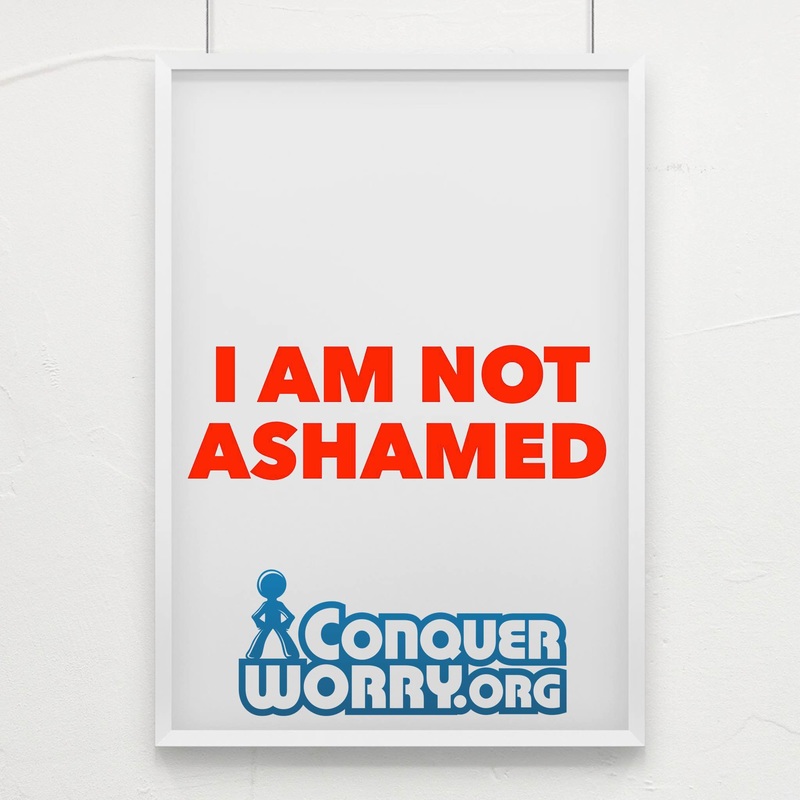
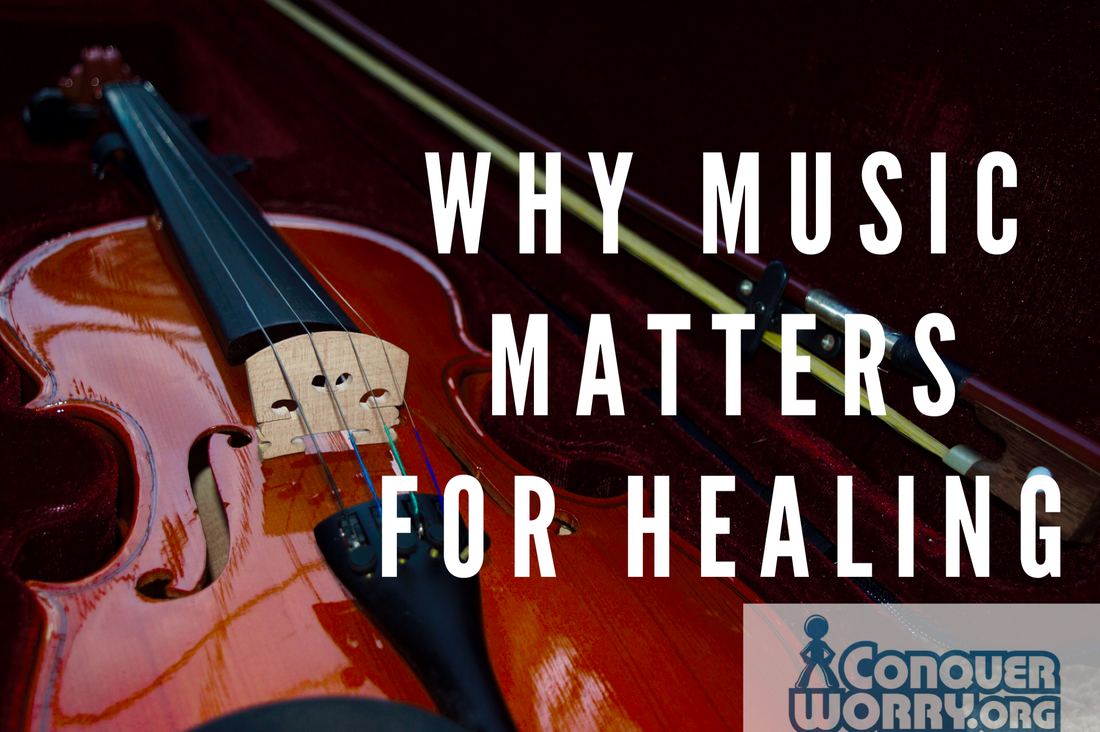
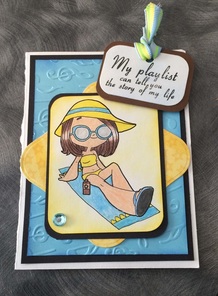
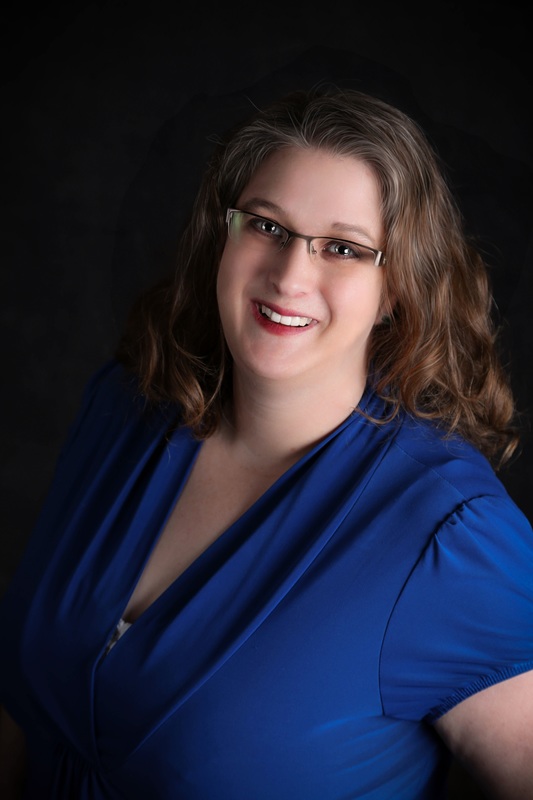
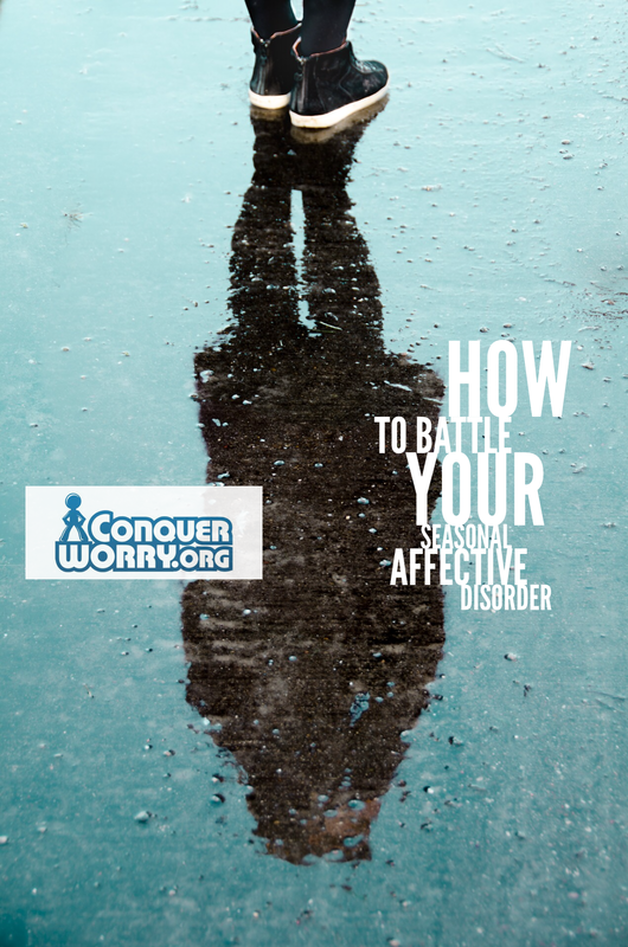


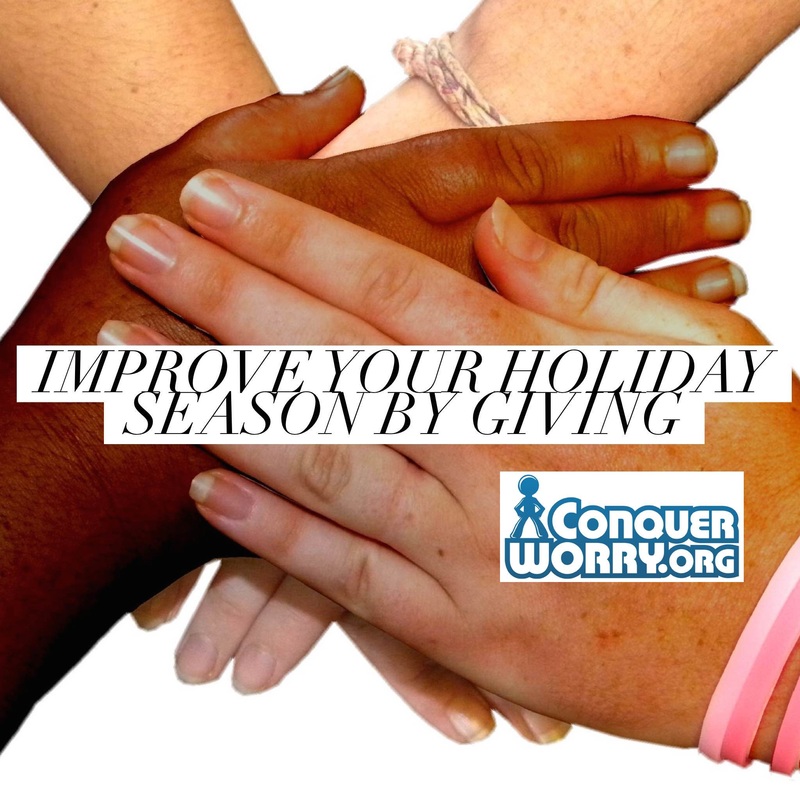
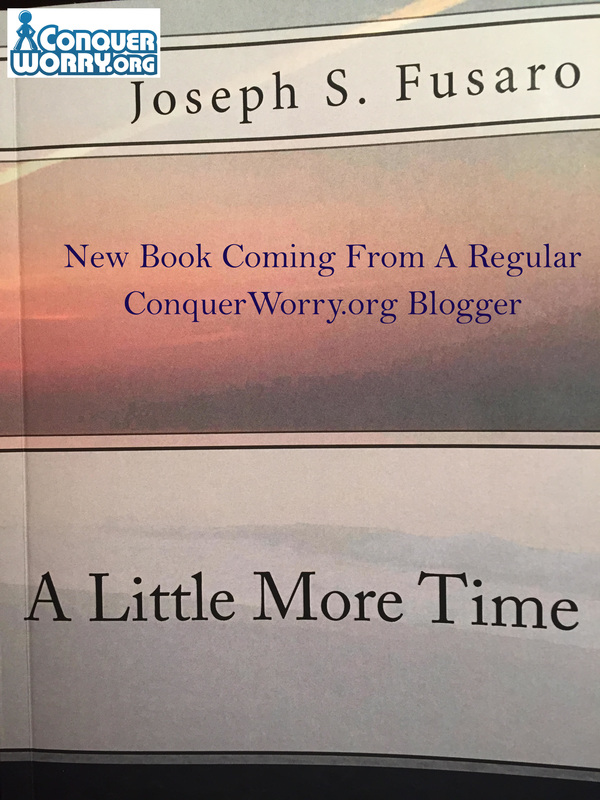

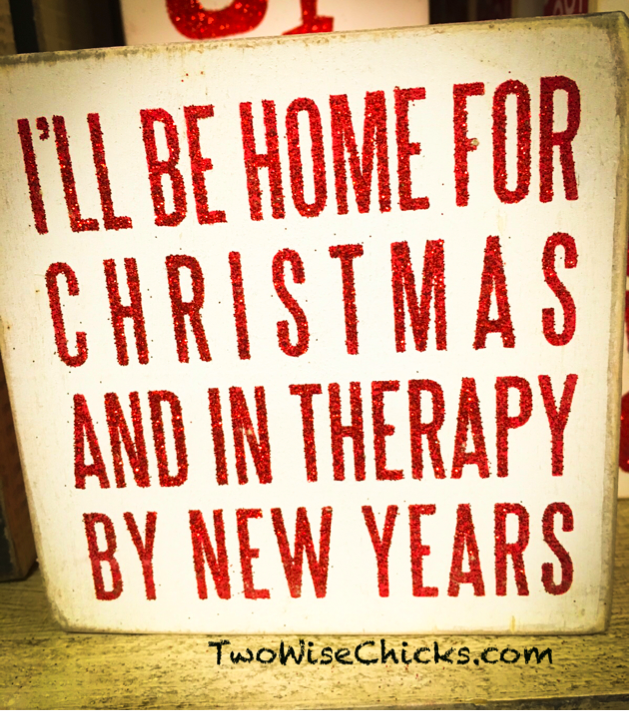
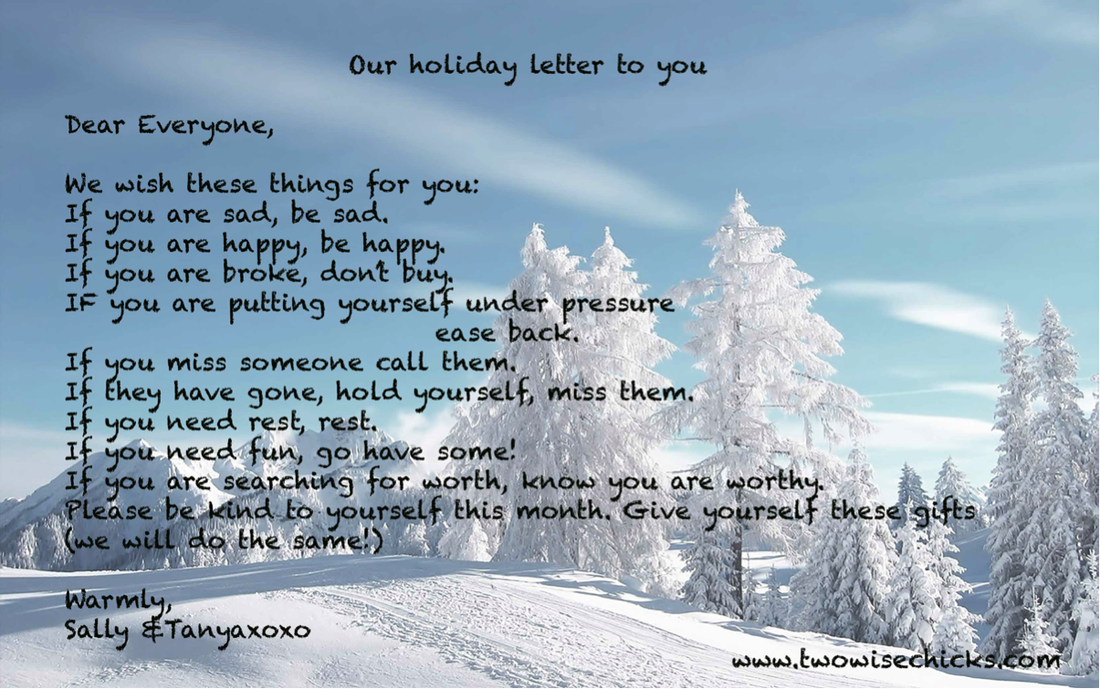
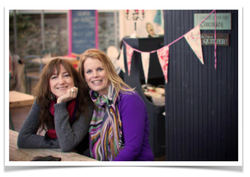
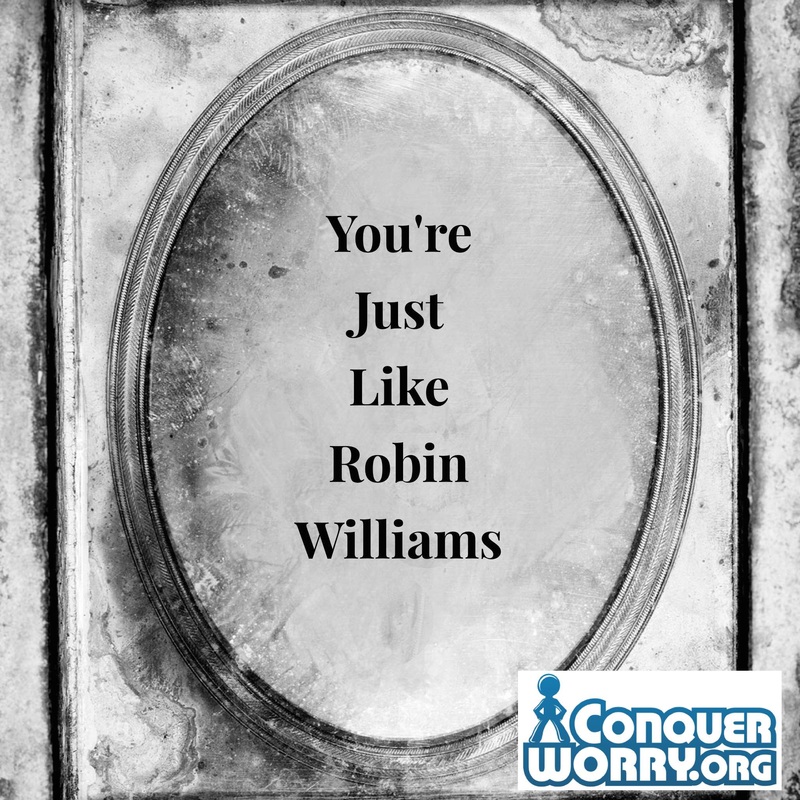
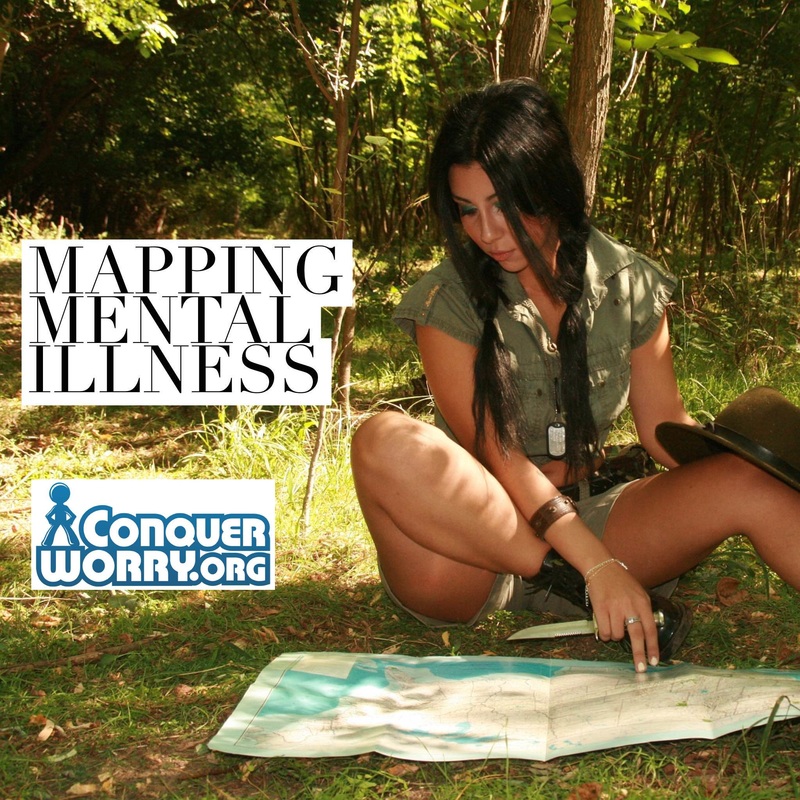
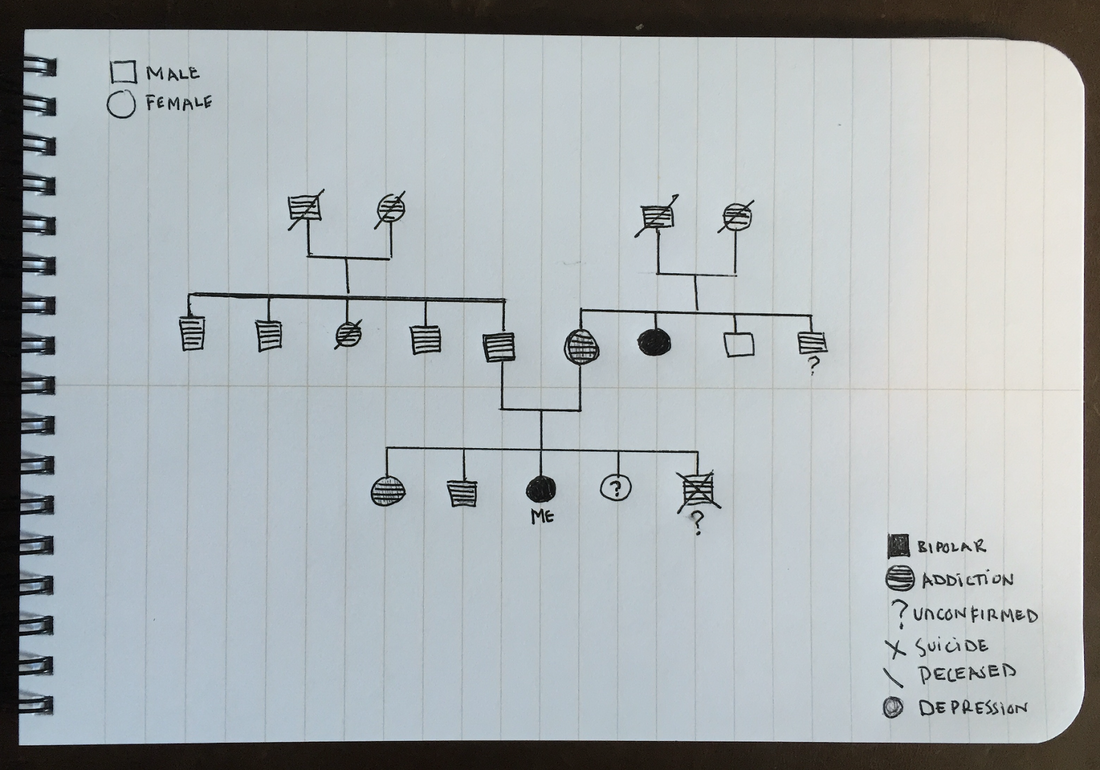
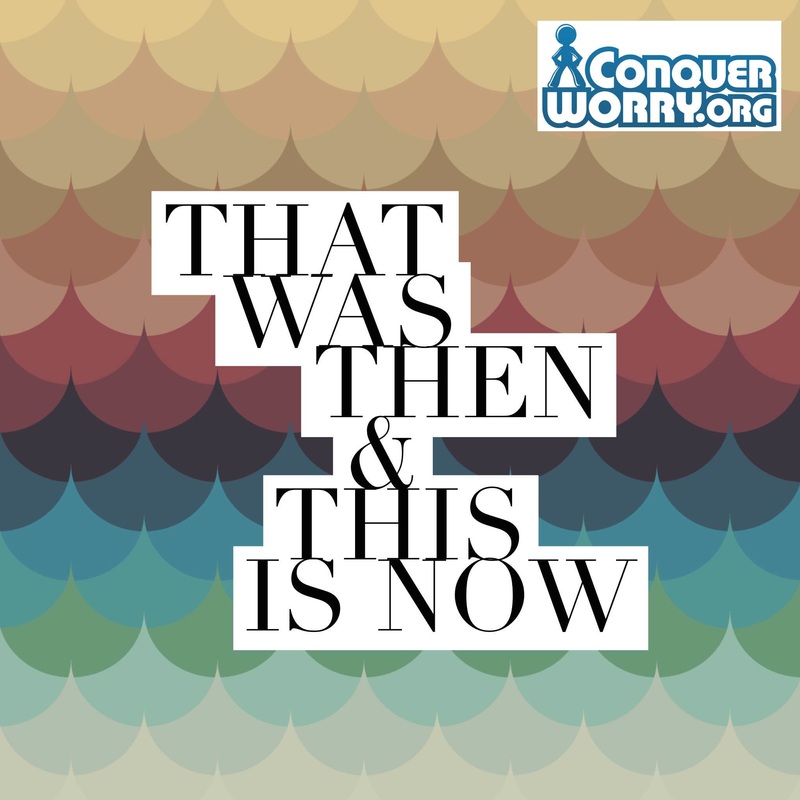
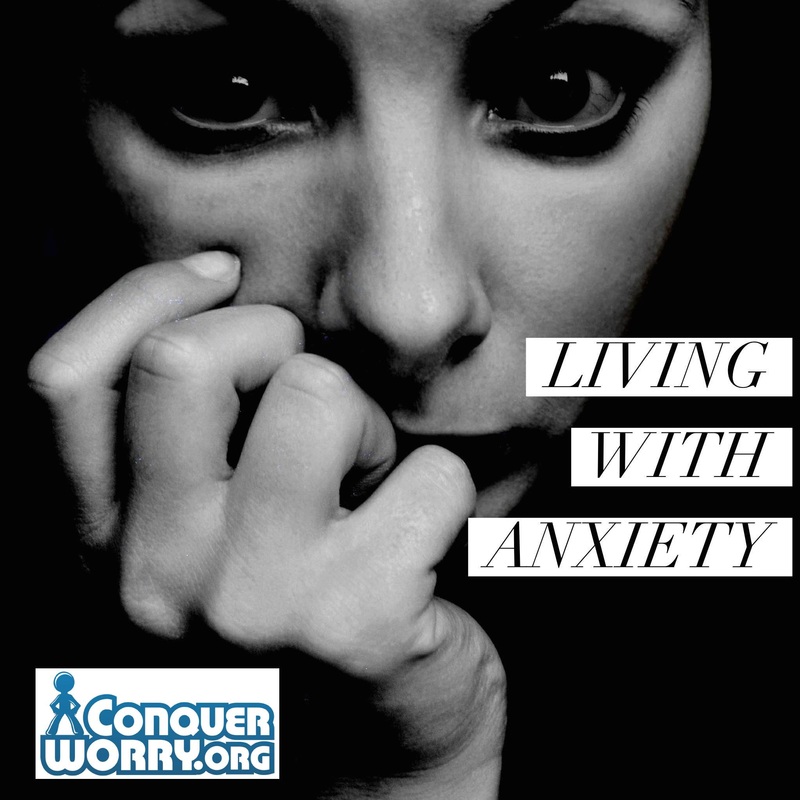
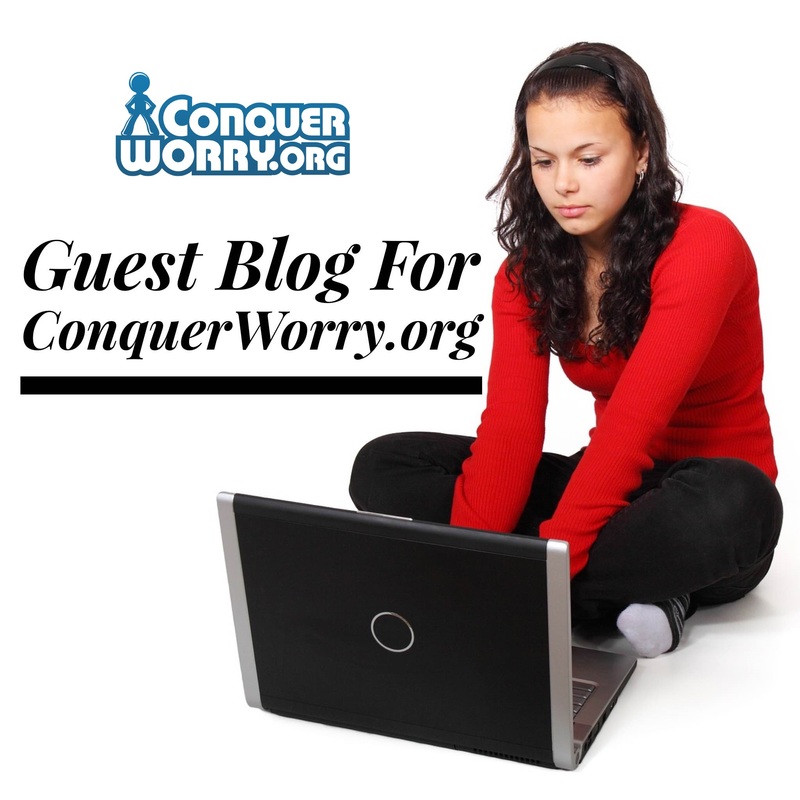
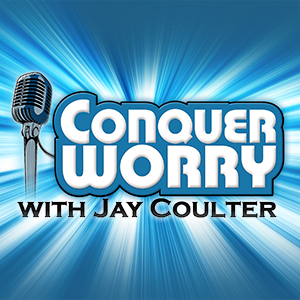
 RSS Feed
RSS Feed